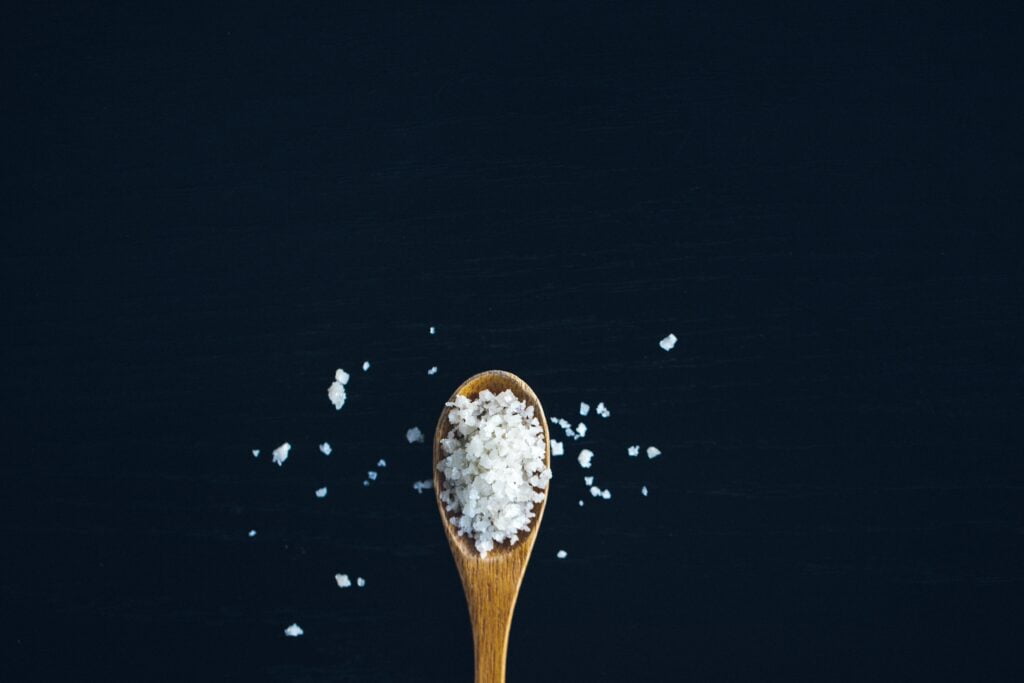Salt is a staple ingredient in most kitchens and has been a part of human culinary practices for centuries. However, over the years, numerous misconceptions and myths about salt have circulated, leading to confusion about its impact on health.
As a child, I remember my mum constantly telling my dad not to put too much salt in his food and I remember having low-sodium salt in the house – anyone else? In this article, I will debunk five common lies you may have been told about salt, providing you with accurate information to make informed decisions about your salt consumption.
Lie: All Salt is the Same:
One of the biggest misconceptions is that all salt is created equal. In reality, there are several types of salt available, including table salt, sea salt, Himalayan pink salt, and kosher salt, among others. These salts differ in their taste, texture, and mineral content. While all salts primarily consist of sodium chloride, certain types, like sea salt and Himalayan pink salt, may contain trace minerals that provide subtle variations in flavour. It’s important to choose high-quality, minimally processed salts to maximise the potential health benefits.
Lie: Salt is Always Harmful to Health:
Salt has long been demonised as a leading cause of high blood pressure and cardiovascular diseases. While excessive salt intake can indeed contribute to these conditions in some individuals, the blanket statement that salt is always harmful is misleading. The body needs a certain amount of sodium to function properly, as it plays a vital role in maintaining fluid balance, nerve function, and muscle contractions. The key lies in moderation and mindful consumption rather than complete avoidance.
Lie: Low-Sodium Diets are Ideal for Everyone:
There is a misconception that a low-sodium diet is universally beneficial and should be followed by everyone. While individuals with specific health conditions, such as hypertension or kidney problems, may benefit from reducing sodium intake, not everyone needs to adhere to a low-sodium diet. Some people, especially athletes or those with high levels of physical activity, may require slightly higher sodium intake to replenish electrolytes lost through sweat. It’s important to consult with a healthcare professional to determine the appropriate sodium intake for your individual needs.
Lie: Salt Causes Fluid Retention and Weight Gain:
Many people associate salt intake with water retention and subsequent weight gain. While excessive sodium consumption can lead to temporary water retention, it does not directly cause long-term weight gain. The body’s ability to regulate fluid balance helps maintain overall homeostasis, and any temporary water retention due to salt intake usually resolves naturally. Weight gain is primarily attributed to an imbalance between caloric intake and expenditure, rather than solely to salt consumption.
Lie: Cutting Out Salt Completely is Beneficial:
Some individuals believe that eliminating salt entirely from their diets is a healthy choice. However, complete elimination of salt can have adverse effects on the body. As mentioned earlier, sodium is essential for various bodily functions. In the absence of sufficient sodium, the body may experience electrolyte imbalances, muscle cramps, fatigue, and even hyponatremia—a condition characterised by low blood sodium levels. It’s important to strike a balance and consume salt in moderation to maintain optimal health.
Final thoughts
Salt, like many other aspects of nutrition, has been subject to numerous myths and misconceptions. While excessive salt intake can have negative health effects for some individuals, moderate and mindful consumption of high-quality salts can be part of a healthy diet. Remember that everyone’s sodium needs are different, and it’s essential to listen to your body and consult with healthcare professionals for personalised advice. By debunking these common lies about salt, you can make informed decisions about your salt intake and enjoy its flavour-enhancing qualities responsibly.
*This article contains affiliate links*




